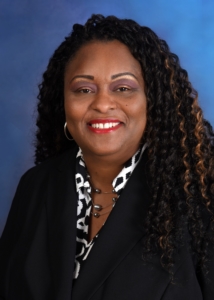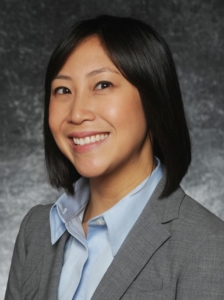A Public Official’s Once Private Social Media Page Can Become a Public Forum, Appellate Court Says
By Christine Wood and HongDao Nguyen, Best Best & Krieger LLP.
The First Amendment continues to evolve to ensure speakers remain protected.
This was recently substantiated by the Second Circuit U.S. Court of Appeals ruling in Knight First Amendment Institute at Columbia University, et al. v. Donald J. Trump. The decision affirmed that the once private social media account of a public official can transform into a limited-public forum, leading to First Amendment violations if an official blocks users and critical comments from the forum.
The case, along with recent court rulings nationwide, provides clarity for elected officials and public employees as to how the First Amendment interacts with social media platforms.
These cases provide lessons that can be implemented into the every-day practice of both agencies and officials to ensure their constituents’ free speech rights are protected on social media platforms.
On Blocking, Deleting Comments — Courts Side with Every-Day Users
The internet has become the present-day public square.
Social media sites and messaging applications from Facebook and Twitter to Instagram, LinkedIn, SnapChat, WhatsApp and more have revolutionized the way people worldwide communicate and interact. These platforms have also become key to public agencies’ and officials’ work.
We now know, as evidenced in Davison v. Loudoun County Board of Supervisors and most recently in Knight v. Trump, that courts will go to great lengths to protect the First Amendment rights of users when government officials block them or remove their comments.
The Knight First Amendment Institute filed suit in 2017 arguing that President Trump and the White House communications team violated the First Amendment when seven Twitter users were blocked from the @realdonaldtrump account after tweeting critical comments about the Trump administration.
Although @realdonaldtrump was established in 2009, seven years prior to his election, the account is now branded as the “45th President of the United States of America,” and the President continues to utilize the account daily to communicate, interact and announce official government business to the public.
The White House admitted to blocking users and defended the decision by arguing that @realdonaldtrump was not a public forum because the site isn’t government owned and that public officials retain their First Amendment rights even upon taking office.
While public officials don’t lose their First Amendment rights, courts generally hold them to a higher standard to guarantee the free speech rights of others aren’t limited.
The U.S. District Court for the Southern District of New York ruled in favor of the blocked Twitter users in July 2018. After the decision, the Trump administration appealed.
In its July 9, 2019 decision, the appellate court addressed significant First Amendment issues. The court concluded the President’s Twitter account was government controlled and, based on a number of factors, considered it a public forum. The court held that by blocking certain users, the President engaged in unconstitutional viewpoint discrimination and excluded them from “speaking” in a public forum.
The court concluded, “…if the First Amendment means anything, it means that the best response to disfavored speech on matters of public concern is more speech, not less.”
Resolving First Amendment, Social Media Conflicts
Here are three other cases, involving similar disputes, that public agencies were able to settle:
- Greben v. City of San Mateo: When the plaintiff requested a list of the blocked or muted accounts on the mayor of San Mateo’s Twitter account, the mayor held the account was personal and not subject to the California Public Records Act. In settling, the mayor unblocked all users and agreed to not block or mute users in the future. The City also adopted a new social media policy.
- Laurenson v. Hogan: The governor of Maryland was sued in 2017 by four plaintiffs who were blocked from posting on his official Facebook page. The governor’s page had a blocking and deleting policy in place, but could remove comments without providing justification. The case was settled for $65,000 with an agreement that the State adopt a new social media policy that limits the governor from blocking users and mandates viewpoint neutrality. Although malicious content can be removed, it must be retained for a year so users can challenge the removal.
- Leuthy v. LePage: The Facebook page of Maine’s governor was designated an “official page,” invoked an official title and was separate from the governor’s personal page. The governor was even recognized as a politician/government official on Facebook’s “Town Hall” feature that helps users contact verified government representatives and enhance civic engagement. In a settlement reached after users were blocked from the governor’s official page, administrators unblocked the users and guidelines were implemented that prohibited blocking based on viewpoint. However, comments could be blocked if they are, among other things, scandalous, discriminatory or vulgar.
Maintaining a Private Social Media Account
It is possible for public officials to maintain private social media accounts.
With some care and consistency, officials can draw a distinct line between a public and private account.
The first step to maintaining a private account designation is keeping it hidden (or private) from public view, wherein the private account is only used to connect with family, friends and close acquaintances.
While it is fine to post agency-related items on a private page, the inclusion of posts that are personal in nature on that page can help a public official assert that the account is private, and not a public account, if its designation ever comes into question.
However, if an official wants to maintain a private account, they must take care not to use an account designation that labels their personal page or feed as an “official” public official or governmental account.
To uphold an account as private, it is also important for a public official to refrain from:
- Taking official action on their social media page that carries out public work
- Using agency staff to help maintain the private social media page
If it is unclear whether, when a public official’s private account has turned into a public forum, the official should refrain from blocking users with differing viewpoints to avoid restricting free speech rights.
The best practice for officials wanting to communicate with constituents via social media is to work with their agency to create an official public page. When creating the page, consider posting guidelines — or a link to guidelines — that provides reasons why a user may be blocked or a comment be deleted.
Thought should also be given to retaining records.
Posts on a public social media account should be retained like any other public record: Retention guidelines (both for government and non-government created content), a retention schedule and a storage mechanism will need to be put into place.
Delve further into the discussion on disabling comments, reverting a public account to a private one, archiving social media posts and more with the recent Q&A from Best Best & Krieger LLP’s webinar—Update: Social Media Meets First Amendment.
[divider] [/divider]
 Christine N. Wood leads Best Best & Krieger LLP’s ARC: Advanced Records Center, which provides public agencies with comprehensive and cost-effective support for records-related matters, including California Public Records Act request processing. An attorney and Certified E-Discovery Specialist, Christine advises, educates and assists public agencies in developing procedures for the preservation, collection and production of electronically stored information. Get in touch at christine.wood@bbklaw.com.
Christine N. Wood leads Best Best & Krieger LLP’s ARC: Advanced Records Center, which provides public agencies with comprehensive and cost-effective support for records-related matters, including California Public Records Act request processing. An attorney and Certified E-Discovery Specialist, Christine advises, educates and assists public agencies in developing procedures for the preservation, collection and production of electronically stored information. Get in touch at christine.wood@bbklaw.com.
 HongDao Nguyen is an attorney in the Municipal Law practice group of Best Best & Krieger LLP. A former news reporter, HongDao brings experience covering city councils, elections and police issues into her public agency practice. She is an assistant city attorney for Stanton, Aliso Viejo and Lake Forest, and serves in BB&K’s ARC: Advanced Records Center. Reach her at hongdao.nguyen@bbklaw.com.
HongDao Nguyen is an attorney in the Municipal Law practice group of Best Best & Krieger LLP. A former news reporter, HongDao brings experience covering city councils, elections and police issues into her public agency practice. She is an assistant city attorney for Stanton, Aliso Viejo and Lake Forest, and serves in BB&K’s ARC: Advanced Records Center. Reach her at hongdao.nguyen@bbklaw.com.





